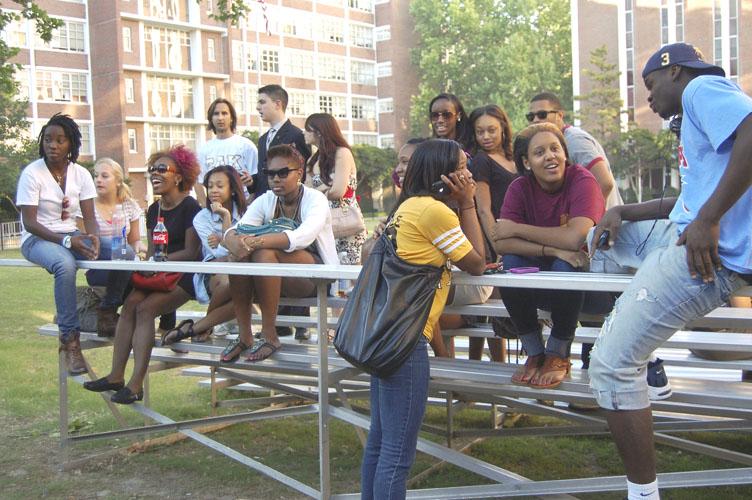Universities across the United States, including Loyola, are seeing a higher increase in black enrollment than ever before.
Throughout the nation, black enrollment has slowly increased in higher education and is presently at an all-time high.
“In 1976, black students made up 9.4 percent of all degree-giving institutions. By 2007, the African American population on college campuses has increased to 13.1 percent,” said the National Center for Education Statistics on their website.
In comparison, white students made up 82.6 percent of secondary education in 1976 and 64.4 percent in 2007.
Loyola has a black population of 14 percent, which is higher than it’s ever been. Research shows there has been a steady increase of black students since 2002.
“At the very least, it is important to have at least 13 percent of the student body be African American, as this is the approximate percent of African Americans in this country,” said Angel Parham, director of African American studies at Loyola.
“I would also say, however, that it is important to have other races and ethnicities well represented at Loyola as well,” Parham said. “Our country is, for example, becoming increasingly Hispanic. Therefore it makes sense to have an increasing number of Hispanic students as well.”
“In general, having healthy mixture of all the different groups is important to helping us all learn to appreciate and live with diversity,” she said.
Although more African American students are enrolling into colleges and universities, not all of these students obtain a degree.
According to the Journal of Blacks in Higher Education, the college graduation rate of black students has improved by four percent, but still remains 43 percent overall, whereas white students graduate at a rate of 81 percent.
Loyola graduated 63.2 percent of white students, compared to a 65.2 percent of black students and 66.3 percent of Hispanic students from 2006 to 2008, which places the university as the fourth best in the nation for narrowing that margin, according to a Loyola press release. Loyola was the only school in Louisiana, Mississippi or Alabama to be ranked in both categories.
“The fact that Loyola New Orleans is one of only 11 schools in the country to graduate equal rates of white, black and Hispanic students is both a testament to this school but also to the lingering and pernicious racial gap in American higher education,” said Alexander Hancock, programs coordinator for the Institute for Quality and Equity in Education at Loyola.
Salvadore Liberto, vice president for Enrollment Management and associate provost, said that the university has made a conscious effort to increse students’ adacemic success.
“All the programs and best practices that admissions and retention experts agree greatly increase students’ chances of academic success,” he said.
These strategies include programs that track student data, design learning communities and advising students and linking them to support services that help them achieve academic success.
“About a third of our students are members of underrepresented minority groups,” Liberto said. “Because the university has over time provided a great deal of support for students who fall into any kind of at-risk categories, it has produced many successful students of all races.”
Loyola arguably has all of the elements suggested by the Journal of Blacks in Higher Education for higher black graduation rates: a nurturing environment, a strong core of African American students, as well as well-distributed scholarship and financial aid. In fact, 99 percent of Loyola undergraduates receive some type of financial aid, according to university demographics.
The Journal of Blacks in Higher Education provides a few explanations as to why black graduation rates are so weak. Some colleges are more favorable toward African American students than at other campuses. A nurturing environment for black students is almost certain to have a positive impact on black student retention and graduation rates.
Also, family wealth and the availability of financial aid are important considerations. According to a study by Nellie Mae, 69 percent of African Americans who enrolled in college did not finish because of high student loan debts as opposed to 43 percent of white students who cited the same problem.
Lauren Fincher can be reached at





